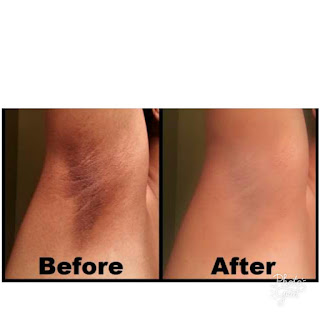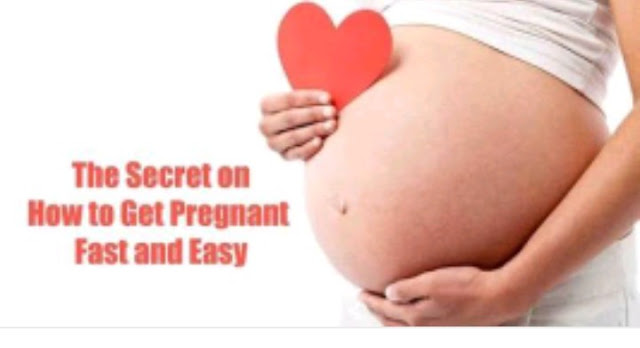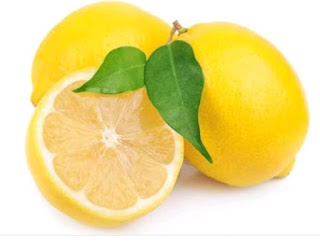Us Justice system is built to humiliate and oppress black men
Chokehold: a maneuver in which a person’s neck is tightly gripped in a way that restrains breathing. A person left in a chokehold for more than a few seconds can die.
The former police chief of Los Angeles Daryl Gates once suggested that there is something about the anatomy of African Americans that makes them especially susceptible to serious injury from chokeholds, because their arteries do not open as fast as arteries do on “normal people.”
The truth is any human being will suffer distress when pressure on the carotid arteries interrupts the supply of blood from the heart to the brain. Many police departments in the United States have banned chokeholds, but this does not stop some officers from using them when they perceive a threat.
The United States supreme court decided a case about chokeholds that tells you everything you need to know about how criminal “justice” works for African American men.
In 1976, Adolph Lyons, a 24-year-old black man, was pulled over by four Los Angeles police officers for driving with a broken taillight. The cops exited their squad cars with their guns drawn, ordering Lyons to spread his legs and put his hands on top of his head.
After Lyons was frisked, he put his hands down, causing one cop to grab Lyons’s hands and slam them against his head. Lyons had been holding his keys and he complained that he was in pain. The police officer tackled Lyons and placed him in a chokehold until he blacked out. When Lyons regained consciousness, he was lying facedown on the ground, had soiled his pants, and was spitting up blood and dirt. The cops gave him a traffic citation and sent him on his way.
Lyons sued to make the LAPD stop putting people in chokeholds. He presented evidence that in recent years 16 people – including 12 black men – had died in LAPD custody after being placed in chokeholds. In City of Los Angeles v Lyons, the US supreme court denied his claim, holding that because Lyons could not prove that he would be subject to a chokehold in the future, he had no “personal stake in the outcome”. Dissenting from the court’s opinion, Thurgood Marshall, the first African American on the supreme court, wrote:
“It is undisputed that chokeholds pose a high and unpredictable risk of serious injury or death. Chokeholds are intended to bring a subject under control by causing pain and rendering him unconscious. Depending on the position of the officer’s arm and the force applied, the victim’s voluntary or involuntary reaction, and his state of health, an officer may inadvertently crush the victim’s larynx, trachea, or hyoid. The result may be death caused by either cardiac arrest or asphyxiation. An LAPD officer described the reaction of a person to being choked as “do[ing] the chicken”, in reference apparently to the reactions of a chicken when its neck is wrung.”
The work of police is to preserve law and order, including the racial order. Hillary Clinton once asked a room full of white people to imagine how they would feel if police and judges treated them the way African Americans are treated. If the police patrolled white communities with the same violence that they patrol poor black neighborhoods, there would be a revolution.
The purpose of my book, Chokehold , is to inspire the same outrage about what the police do to African Americans, and the same revolution in response.
A chokehold is a process of coercing submission that is self-reinforcing. A chokehold justifies additional pressure on the body because the body does not come into compliance, but the body cannot come into compliance because of the vise grip that is on it.
This is the black experience in the United States. This is how the process of law and order pushes African American men into the criminal system. This is how the system is broke on purpose.
There has never, not for one minute in American history, been peace between black people and the police. And nothing since slavery – not Jim Crow segregation, not lynching, not restrictive covenants in housing, not being shut out of New Deal programs like social security and the GI bill, not massive white resistance to school desegregation, not the ceaseless efforts to prevent blacks from voting – nothing has sparked the level of outrage among African Americans as when they have felt under violent attack by the police.
Most of the times that African Americans have set aside traditional civil rights strategies like bringing court cases and marching peacefully and instead have rioted in the streets and attacked symbols of the state have been because of something the police have done. Watts in 1965, Newark in 1967, Miami in 1980, Los Angeles in 1992, Ferguson in 2015, Baltimore in 2016, Charlotte in 2016 – each of these cities went up in flames sparked by the police killing a black man.
The problem is the criminal process itself.
Cops routinely hurt and humiliate black people because that is what they are paid to do. Virtually every objective investigation of a US law enforcement agency finds that the police, as policy , treat African Americans with contempt.
In New York, Baltimore, Ferguson, Chicago, Los Angeles, Cleveland, San Francisco, and many other cities, the US justice department and federal courts have stated that the official practices of police departments include violating the rights of African Americans. The police kill, wound, pepper spray, beat up, detain, frisk, handcuff, and use dogs against blacks in circumstances in which they do not do the same to white people.
It is the moral responsibility of every American, when armed agents of the state are harming people in our names, to ask why.
Every black man in America faces a symbolic chokehold every time he leaves his home. The sight of an unknown black man scares people, and the law responds with a set of harsh practices of surveillance, control and punishment designed to put down the threat.
The people who carry out the chokehold include cops, judges, and politicians. But it’s not just about the government. It’s also about you. People of all races and ethnicities make the most consequential and the most mundane decisions based on the chokehold. It impacts everything from the neighborhood you choose to live in and who you marry to where you look when you get on an elevator.
I like hoodies, but I won’t wear one, and it’s not mainly because of the police. It’s because when I put on a hoodie everybody turns into a neighborhood watch person. When the sight of a black man makes you walk quicker or check to see if your car door is locked, you are enforcing the chokehold.
You are not alone. As an African American man, I’m not only the target of the chokehold. I’ve also been one of its perpetrators. I’ve done so officially – as a prosecutor who sent a lot of black men to prison. I represented the government in criminal court and defended cops who had racially pro-led or used excessive force. Many of those prosecutions I now regret. I can’t turn back time, but I can expose a morally bankrupt system. That’s one reason I wrote this book.
But before I get too high and mighty, you should know that I’ve also enforced the chokehold outside my work as a prosecutor. I am a black man who at times is afraid of other black men. And then I get mad when people act afraid of me.
Other times I have been more disgusted or angry with some of my brothers than scared. I read the news articles about “black-on-black” homicide in places like Chicago and Los Angeles. I listen to some hip-hop music that seems to celebrate thug life. And as a kid I got bullied by other black males. Sometimes I think if brothers would just do right, we would not have to worry about people being afraid of us. I have wondered if we have brought the chokehold on ourselves.
In my years as a prosecutor, I learned some inside information that I am now willing to share. Some of it will blow your mind, but I don’t feel bad for telling tales out of school. I was on the front lines in carrying out the chokehold. Now I want to be on the front lines in helping to crush it.
My creds to write this book don’t come just from my experience as a law enforcement officer, my legal training at Harvard, or the more than 20 years I have spent researching criminal justice. I learned as much as an African American man who got arrested for a crime I did not commit – during the time that I served as a federal prosecutor. I didn’t beat my case because I was innocent, even though I was. I beat my case because I knew how to work the system.
The chokehold does not stem from hate of African Americans. Its anti-blackness is instrumental rather than emotional. As slaves built the White House, the chokehold builds the wealth of white elites. Discriminatory law enforcement practices such as stop and frisk, mass incarceration, and the war on drugs are key components of the political economy of the United States. After the civil rights movement of the 1960s stigmatized overt racism, the national economy, which from the founding has been premised on a racialized form of capitalism, still required black bodies to exploit. The chokehold evolved as a “color-blind” method of keeping African Americans down, and then blaming them for their own degradation. The rap group Public Enemy said: “It takes a nation of millions to hold us back.”
Actually all it takes is the chokehold. It is the invisible fist of the law.
The chokehold means that what happens in places like Ferguson, Missouri , and Baltimore, Maryland – where the police routinely harass and discriminate against African American – is not a flaw in the criminal justice system. Ferguson and Baltimore are examples of how the system is supposed
to work. The problem is not bad-apple cops. The problem is police work itself. American cops are the enforcers of a criminal justice regime that targets black men and sets them up to fail.
The chokehold is how the police get away with shooting unarmed black people. Cops are rarely prosecuted because they are, literally, doing their jobs. This is why efforts to fix “problems” such as excessive force and racial profiling are doomed to fail. If it’s not broke, you can’t fix it. Police violence and selective enforcement are not so much flaws in American criminal justice as they are integral features of it. The chokehold is why, legally speaking, black lives don’t matter as much as white lives.
The whole world knows that the United States faces a crisis in racial justice, but the focus on police and mass incarceration is too narrow. We might be able to fix those problems the way that we “ fixed” slavery and segregation, but the chokehold’s genius is its mutability. Throughout the existence of America, there have always been legal ways to keep black people down. Slavery bled into the old Jim Crow; the old Jim Crew bled into the new Jim Crow. In order to halt this wretched cycle we must not think of reform – we must think of transformation. The United States of America must be disrupted, and made anew. This book uses the experience of African American men to explain why.
One of the consequences of the chokehold is mass incarceration, famously described by Michelle Alexander as “the new Jim Crow”. The chokehold also brings us police tactics such as stop and frisk, which are designed to humiliate African American males – to bring them into submission. The chokehold demands a certain kind of performance from a black man every time he leaves his home. He must affirmatively demonstrate – to the police and the public at large –that he is not a threat. Most African American men follow the script. Black men who are noncompliant suffer the consequences.
The chokehold is perfectly legal. Like all law, it promotes the interests of the rich and powerful. In any system marked by inequality, there are winners and losers. Because the chokehold imposes racial order, who wins and who loses is based on race.
White people are the winners. What they win is not only material, like the cash money that arresting African Americans brings to cities all over the country in fines and court costs. The criminalizing of blackness also brings psychic rewards. American criminal justice enhances the property value of whiteness.
As the chokehold subordinates black men, it improves the status of white people. It works as an enforcement mechanism for keeping the black man in his place literally as well as figuratively. Oh the places African American men don’t go because of the chokehold. It frees up urban space for coffeehouses and beer gardens.
But it’s not just the five-dollar latte crowd that wins. The chokehold is something like an employment stimulus plan for working-class white people, who don’t have to compete for jobs with all the black men who are locked up, or who are underground because they have outstanding arrest warrants, or who have criminal records that make obtaining legal employment exceedingly difficult. Poor white people are simply not locked up at rates similar to African Americans. These benefits make crushing the chokehold more difficult because if it ends, white people lose – at least in the short term.
Progressives often lambast poor white people for voting for conservative Republicans like Donald Trump, suggesting that those votes are not in their best interests. But low-income white folks might have better sense than pundits give them credit for. A vote for a conservative is an investment in the property value of one’s whiteness. The criminal process makes white privilege more than just a status symbol, and more than just a partial shield from the criminal process (as compared to African Americans). Black men are locked up at five times the rate of white men. There are more African Americans in the US criminal justice system than there were slaves in 1850.
By reducing competition for jobs, and by generating employment in law enforcement and corrections, especially in the mainly white rural areas where prisons are often located, the chokehold delivers cash money to many working-class white people.
The chokehold relegates black men to an inferior status of citizenship. We might care about that as a moral issue, or as an issue of racial justice. But honestly, many people will not give a damn for those reasons. African Americans have been second-class citizens since we were allowed – after the bloodiest war in US history and an amendment to the constitution – to become citizens at all.
The political scientist Lisa Miller has described the United States as a “failed state” for African Americans. Indeed some activists involved in the movement for black lives speak of their work as creating a “Black Spring”, similar to the Arab Spring movements that attempted to bring democracy to some Middle Eastern countries.
We face a crucial choice. Do we allow the chokehold to continue to strangle our democracy and risk the rebellion that always comes to police states? Or do we transform the United States of America into the true multiracial democracy that, at our best, we aspire to be? My book is about the urgency of transformation. All of the people will be free, or none of them will. “All the way down, this time.”
Copyright © 2017 by Paul Butler. This excerpt originally appeared in
Chokehold: Policing Black Men by Paul Butler, published by The New Press. Reprinted here with permission.
Illustration by Joe Magee.














Comments
Post a Comment